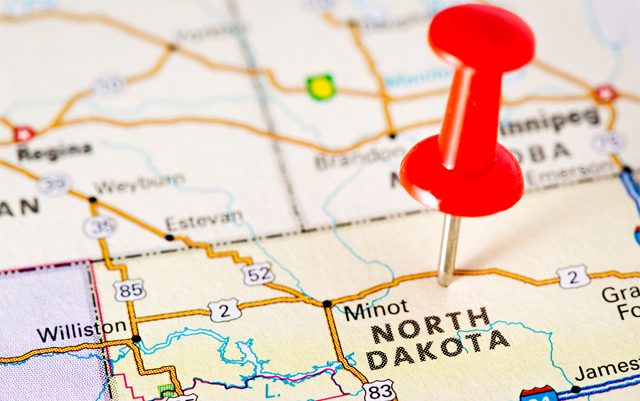Deadlines are fast approaching for most of the campaigns circulating in states hoping to put an end to cannabis prohibition. Whether it be in the form of medicinal or recreational marijuana, the goal at this point is always the same: get the needed number of signatures to qualify for the ballot. In North Dakota, there were two cannabis-related initiatives circulating petitions, hoping to gather the needed 13,452 signatures – one aiming to give individuals with debilitating conditions access to medical marijuana and the other hoping to legalize use, cultivation and possession for adults 21+ . Unfortunately, the recreational initiative did not get the minimum number of petitions needed to qualify.
The only one that will have a shot at the ballot this year will be the North Dakota Compassionate Care Act, which would effectively legalize medical marijuana use (with permission from a physician, of course). It would allow patients to have up to 3 ounces of marijuana in their possession as long as it is for medicinal purposes. Patients would be able to purchase cannabis products through dispensaries licensed by the state Health Department, which would be operated as nonprofit facilities.
Anyone living more than 40 miles from a licensed dispensary will have the option to grow their own cannabis at home – as long as they inform their local law enforcement, and grow no more than eight plants in an enclosed space. This will ensure that no matter someone’s geographical location, they will still be able to legally have access to the medicine that they need.
“Families worked very hard to get this on the ballot,” said Mary Rennich, of Bismarck, who was one of about a dozen people who turned in the signatures on Monday at the state Capitol in Bismarck. She said her 25-year-old son suffers from epileptic seizures and hoped that legalizing marijuana for medical purposes would help.
As of this week, the medical marijuana campaign has turned in a total of 17,500 signatures to the Secretary of State, who now has one month to go through and verify as many signatures as possible. Assuming that enough of their signatures are valid, the question will appear on the November ballot and North Dakota will have the opportunity to legalize medical marijuana for patients suffering from a range of debilitating conditions; from cancer and glaucoma to PTSD and many others the initiative would allow access to a number of patients who may benefit immensely.






